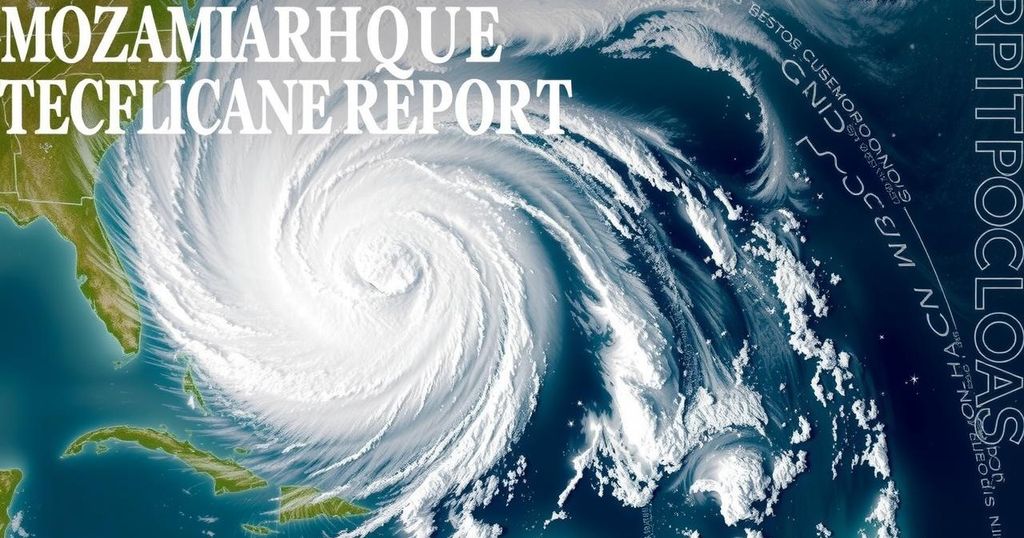Humanitarian Response to Tropical Cyclone Chido in Mozambique: Situation Update as of December 30, 2024

The report details the impact of Tropical Cyclone Chido, which struck Mozambique on December 15, 2024, resulting in severe humanitarian needs. Coordination among agencies like IOM, UNHCR, ASMOG, and Pronanac has led to some activation of accommodation centers, but many displaced people remain in inadequate shelter. Immediate action is required to improve living conditions and address the pressing needs of affected communities.
The CCCM Cluster report highlights the devastating effects of Tropical Cyclone Chido, which struck the Mecúfi district on December 15, 2024. The cyclone resulted in widespread infrastructure damage, loss of life, injuries, and increased humanitarian needs in urban and rural communities across southern Cabo Delgado, Niassa, and northern Nampula districts. Between December 14 and 30, 2024, the CCCM Cluster partners, including IOM, UNHCR, ASMOG, and Pronanac, coordinated with local authorities to address the crisis. Only four accommodation centers were officially activated for displaced individuals, revealing the inadequacy of shelter options. Some displaced families continue to seek refuge in makeshift accommodations, such as neighbors’ yards and schools.
Tropical Cyclone Chido made landfall in Mozambique’s Mecúfi district, leading to extensive humanitarian impacts in various regions, particularly the southern areas of Cabo Delgado and Niassa, as well as northern Nampula. The National Institute for Disaster Risk Reduction Management reported a significant increase in urgent humanitarian needs among affected populations, with many suffering due to the lack of adequate shelter and basic services. This report synthesized the collaborative efforts of various humanitarian agencies working to provide support and facilitate the effective management of displacement in the aftermath of the cyclone.
The aftermath of Tropical Cyclone Chido has exacerbated existing humanitarian challenges faced by communities in Mozambique, particularly in Cabo Delgado, Niassa, and Nampula. Efforts to manage displacement and provide basic needs are ongoing, although significant gaps remain in shelter, sanitation, and service availability. Coordinated actions between humanitarian agencies and local authorities are essential to enhance relief efforts and restore dignity to affected populations. Immediate interventions aimed at improving living conditions and infrastructure are critical to prevent further deterioration of the situation.
Original Source: reliefweb.int







